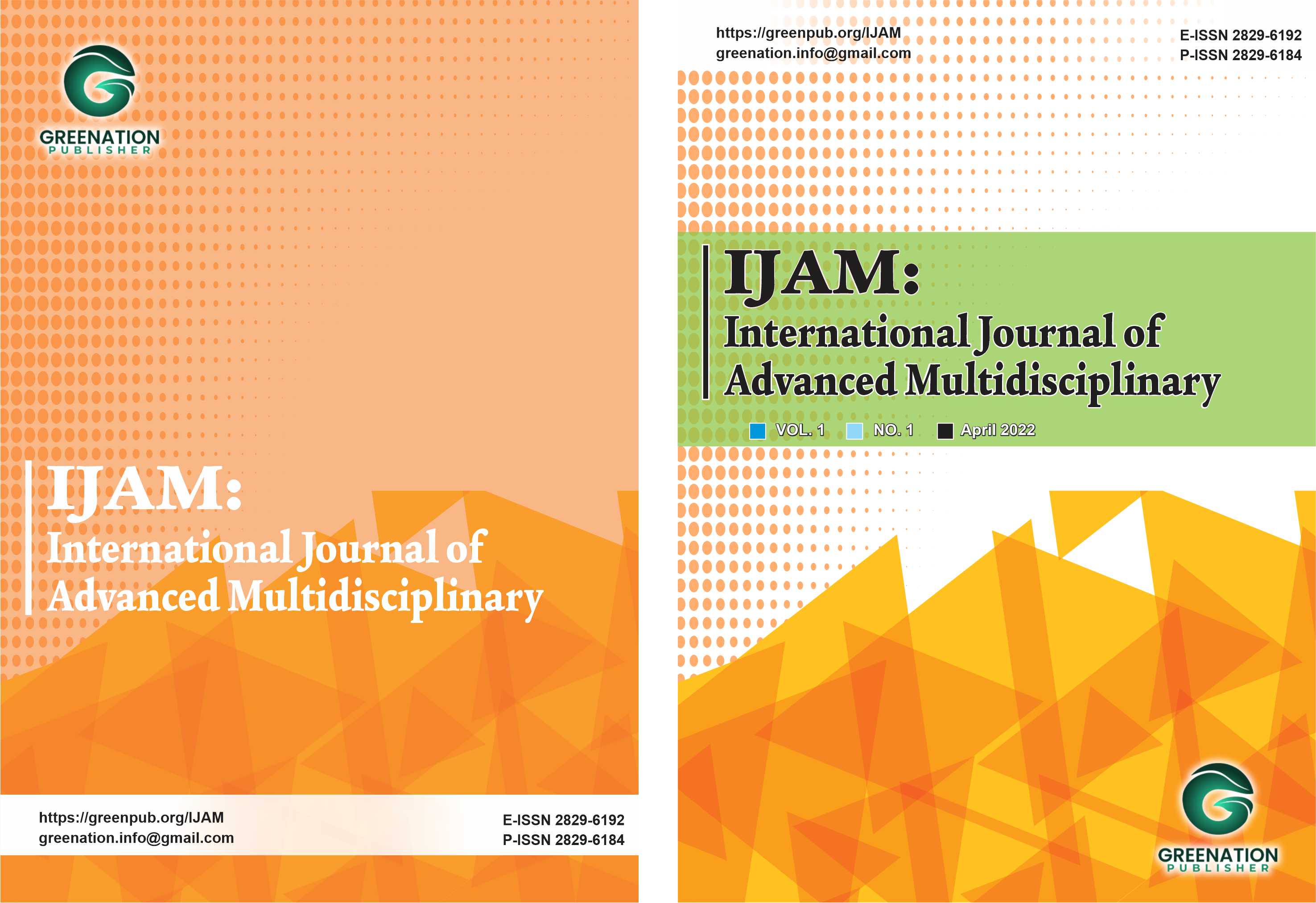Determination of Islamic Leadership: Amanah, Fatonah, Tabligh, Siddiq
DOI:
https://doi.org/10.38035/ijam.v2i2.271Keywords:
Islamic Leadership, Amanah, Fatonah, TablighAbstract
Termination of Islamic leadership:: Amanah, Fatonah, Tabligh, Siddiq are scientific literature review articles. Objective Writing this article to establish the influence hypothesis or the role between variables that will be used in further research, within the scope of Human Resource Management and Leadership. Article Writing Method is method library research, sourced from online media such as Google Scholar, Mendeley and media online other academics. Analysis qualitative descriptive. results of this article are: 1) Amanah has an effect on Islamic Leadership; 2) Fathanah influences Islamic leadership; 3) Tabligh influences Islamic leadership; 4) Siddiq influences Islamic leadership.
References
Ali, J.S. (2007), “Leadership: an Islamic perspective”, paper presented at International Conference, Management from Islamic Perspective at Hilton Kuala Lumpur, 15-16 May, Organized by KENMS
Ali, H., & Limakrisna, N. (2013). Research Methodology (Practical Instructions for Solving Business Problems, Thesis Compilation (Doctoral dissertations, Theses, and Dissertations. InIn Deeppublish: Yogyakarta Mar'atul Azizah, Patterns of Fostering and Development of Islamic Education Institutions through the Ideal Leadership of Madrasa Heads Al Idara, Vol.2 No.1, 2018, 69
Ali, A. Y. (1985). The Holy Quran—English Translation of the Meaning and Commentary. AlMadinah al-Munawwarah: King Fahd Complex for the Printing of the Holy Qur’an. https://archive.org/stream/TheHolyQuranEnglishTranslationoftheMeaningandCommentary/ The%20Holy%20Quran%20-%20Abdullah%20Yusuf%20Ali%20IFTA_djvu.txt
Amirin, T.M (2007). Trustworthy leadership. Educational Dynamics, 1(14), 1- 11.
Effendi Faisah, Psychology of Da'wah, (Jakarta: Kencana, 2009) p 52
Eki Saepurohman et al, "Islamic Leadership in the Management of Educational Institutions"JAMMIAH (Scientific Journal of Islamic Economics Students).Vol, 2 No,1 (2020) 1-14
Hakim, A. (2012). The implementation of islamic leadership and islamic organizational Culture and its influence on islamic working motivation and islamic Performance PT bank Mu’amalat indonesia Tbk. Employee in the central java. Asia Pacific Management Review, 17(1), 77–90.
Hidayat, W., Olifiansyah, M., Dzulfiqar, M., & Diaying, B. P. (2020). LEADERSHIP IN ISLAMIC PERSPECTIVE.El-Hikmah, 14(1), 98–111.
Hughes, Gennett and Curephy. (2002) Leadership. New York: Prentice Hall, Inc.
Ibn Kathir. (2013). Interpretation of Ibn Kathir. Jakarta: Imam Syafii Library.
Irawan Misbach, "Sharia Business Behavior", Journal of Al-Idah, Vol. 5, (June 2017), 37.
Kartini Kartono, Leaders and Leadership, (Jakarta: Grafindo Persada, 1982), p. 50
Masdar Hilmy, ‘Modern Islamic Boarding School Character-Based Leadership’, Journal of Islamic Education Studies, 7.2 (2019), 89–106.
Muhammad Ramli, Islamic Boarding School Management and Leadership, Al Falah, Vol. XVII No. 32 of 2017, 133
M. Chabib Thoha, Kapita Selecta Islamic Education, (Yogyakarta: Student Library, 1996), p. 129
M. Natsir, Preaching and His Thoughts, (Jakarta: Echoes of Insani Press, 1999), Cet. 1st, p.
Mohammad Subhi and Dhea Dayurangi Meghatruh, 'Integrity Perspective of Islam', Lecturer's Scientific Work Article, 2021
Muhamad Ekhsan and Roni Mariyono, 'The Influence of Islamic Leadership Style, Islamic Organizational Culture and Incentives on Employee Productivity of PT Yanmar Indonesia', Jesya (Journal of Economics & Sharia Economics), 3.2 (2020), 265–75.
Muhammad, Y. (2021). Basic Concepts of Leadership Characteristics in Islamic Education.AL-HIKMAH: Journal of Education and Islamic Religious Education, 3(2), 157–169.
Rezy Aziz and Atina Shofawati, 'The Influence of Islamic Leadership and Islamic Organizational Culture on Islamic Work Motivation in Skin SMEs in Magetan', Journal of Islamic Economics Theory and Applied, 1.6 (2015), 399
Putri Mauliza, Rusli Yusuf, and T Roli Ilhamsyah, 'The Effect of Islamic Work Ethics and Transformational Leadership Style on Organizational Commitment and the Implications for the Performance of Wilayatul Hisbah Employees in Banda Aceh City', JPED (Journal of Darussalam Economic Perspectives)(Darussalam Journal of Economic Perspectives), 2.2 (2016), 185–200.
Vethzal Rivai, Leadership Tips in the 21st Century, (Jakarta: Murai Kencana, 2004), p. 202
Downloads
Published
How to Cite
Issue
Section
License
Authors who publish their manuscripts in this journal agree to the following conditions:
- The copyright on each article belongs to the author(s).
- The author acknowledges that the International Journal of Advanced Multidisciplinary (IJAM) has the right to be the first to publish with a Creative Commons Attribution 4.0 International license (Attribution 4.0 International (CC BY 4.0).
- Authors can submit articles separately, arrange for the non-exclusive distribution of manuscripts that have been published in this journal into other versions (e.g., sent to the author's institutional repository, publication into books, etc.), by acknowledging that the manuscript has been published for the first time in the International Journal of Advanced Multidisciplinary (IJAM).






















